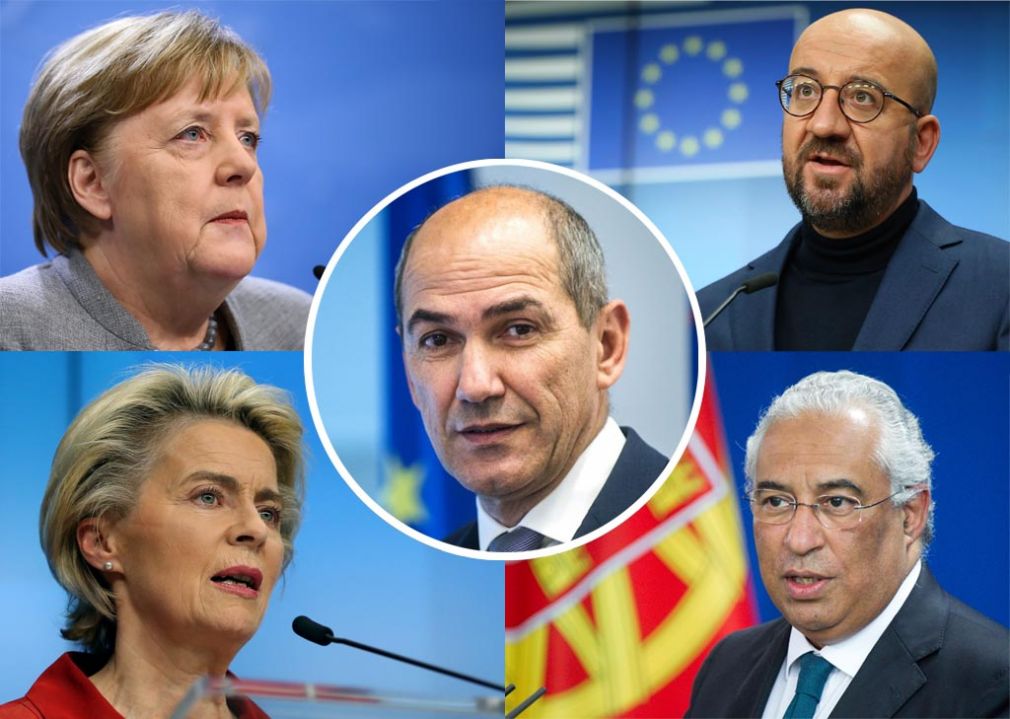by Nina Šoher (Nova24TV)
On Tuesday, Prime Minister Janez Janša sent a letter to the leaders of the European Union, calling for a return to the agreement reached at the July EU summit on the financial framework for the tackling of the epidemic, which is now being undermined by the more recent agreement between the European Council and the European Parliament on the conditionality of the use of funds with respect for the so-called rule of law.
The letter caused quite a stir in public, and especially in the ranks of the opposition, so Janša decided to respond and explain what the letter was really about. “The letter to our colleagues in the European Council was not an open letter but an exchange of opinions with people with whom we debated the financial package and the rule of law for four days and nights this July,” he made it clear, adding that what is problematic is that, in accordance with the “rule of law” in the European Union, or on the basis of the Treaty on the European Union, every Member State has the right to veto any common decision where unanimity is required. “Is it so difficult to understand that in this case, this means at minimum a standstill in the recovery after the epidemic?”
Prime Minister Janez Janša initially explained that Slovenia would consistently defend the rule of law and equal criteria for everyone everywhere, both at home and in the EU. “ Respecting the rule of law in the European Union means that the Treaty of Lisbon and other legal foundations of the EU apply in Poland the same as in Belgium, Slovenia, Spain, Hungary, or other states.”
This was not an open letter
According to Janša, the letter that he sent to his colleagues in the European Council was not an open letter but an exchange of opinions with people with whom he debated the financial package and the rule of law for four days and nights in July this year. “The majority of people outside this circle probably have difficulties understanding this pivotal time for the future of the European Union. A fair proportion of the definition of the mechanism of the rule of law was not adopted at the European Council in July, as some believed it to be in contravention with the Treaty on the European Union. They announced they would veto the budget if this instrument were to be imposed.”
According to Janša, the mechanism, which was already rejected in July but is now being proposed again, envisages that the European Commission may also initiate the procedure on the basis of “recommendations” of various “international organizations and networks,” of which only a few are listed, and conclude it with a majority vote by the Council of the European Union, and not with a decision made by the court. “This is an attempt to set up a parallel and different mechanism than the one stipulated in the Treaty, which ends with a majority vote of a political body. In Europe, such procedures have never before been called “the rule of law.”
On Monday’s COREPER meeting, Slovenia did not veto nor did it announce it would veto, but we did propose that before the final decision is reached and the consequent inevitable blockade of the EU funds FOR EVERYONE follows, we take some extra time and find a compromise on the basis of the agreement reached in July.
“My letter is an attempt at a call to reason. We are jointly responsible for the future of the European Union. We are under an obligation to think with our own heads. Those who do not believe that the situation is serious, are similar to the people who went around before Brexit, eagerly explaining that nothing dramatic is happening. In accordance with the “rule of law” in the European Union or on the basis of the Treaty on the European Union, every member state has the right to veto where unanimity is required. Is it so difficult to understand that in this case, this means at minimum a STANDSTILL in the recovery after the epidemic? And that it is in the interest of Slovenia that this does not happen?” concluded the Slovenian Prime Minister.

